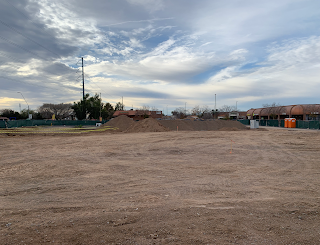You have the right to remain silent in Phoenix, Arizona
If you're like me, you grew up watching movies and TV shows and hearing:
- You have the right to remain silent when questioned.
- Anything you say or do may be used against you in a court of law.
- You have the right to consult an attorney before speaking to the police and to have an attorney present during questioning now or in the future.
- If you cannot afford an attorney, one will be appointed for you before any questioning, if you wish.
- If you decide to answer any questions now, without an attorney present, you will still have the right to stop answering at any time until you talk to an attorney.
- Knowing and understanding your rights as I have explained them to you, are you willing to answer my questions without an attorney present?
These are the Miranda Warnings, commonly called Miranda Rights, named after Ernesto Miranda in 1966.
If you know your Phoenix, Arizona history, you're not surprised to find that law enforcement was, to say the least, heavy-handed there. From trigger-happy constables to lynch parties, Arizona was not a safe place to commit crimes. Nor was it a safe place to be innocent, and simply accused of crimes.
I'm old enough to remember the backlash to the Miranda Rights, seeing movies like "Dirty Harry". And I'm also young enough to remember the backlash against that backlash, when people started thinking that maybe that everyone deserves a fair trial in the United States, even if they don't know their rights when being arrested.
Yes, Ernesto Miranda was found guilty of the crimes of which he was accused. But he had rights, even in Arizona.




Comments
Post a Comment